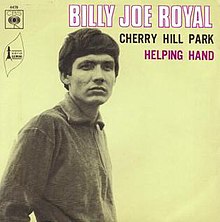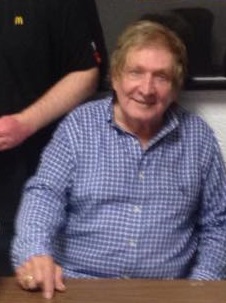
Billy Joe Royal was an American country soul singer. His most successful record was "Down in the Boondocks" in 1965.

"MacArthur Park" is a song written by American singer-songwriter Jimmy Webb that was recorded first by Irish actor and singer Richard Harris in 1968. Harris's version peaked at number two on the Billboard Hot 100 chart and number four on the UK Singles Chart. "MacArthur Park" was subsequently covered by numerous artists, including a 1970 Grammy-winning version by country music singer Waylon Jennings and a number one Billboard Hot 100 disco arrangement by Donna Summer in 1978. Webb won the 1969 Grammy Award for Best Arrangement Accompanying Vocalist(s) for the Richard Harris version.

"Hush" is a song written by American composer and musician Joe South, for recording artist Billy Joe Royal. The song was later covered by Somebody's Image in 1967. It reached #15. It was also covered by Deep Purple in 1968 and by Kula Shaker in 1997. Each artist had a Top 5 hit with their version.

The Classics IV is an American band formed in Jacksonville, Florida, United States, in 1965. The band, founded by Dennis Yost, is known mainly for the hits "Spooky," "Stormy," and "Traces," released 1967 to 1969, which have become cover standards.

"One Tin Soldier" is a 1960s counterculture era anti-war song written by Dennis Lambert and Brian Potter. Canadian pop group The Original Caste first recorded it in 1969 for both the TA label and its parent Bell label.
"For All We Know" is a soft rock song written for the 1970 film Lovers and Other Strangers, with music by Fred Karlin and lyrics by Robb Wilson and Arthur James. Both Royer and Griffin were founding members of the soft rock group Bread. It was originally performed, for the film's soundtrack, by Larry Meredith. The best known version of the song is by American pop duo the Carpenters which reached No. 3 on the US Billboard Hot 100 chart and No. 1 on the US Billboard Easy Listening chart in 1971. The song was also a hit for Shirley Bassey at the same time in the United Kingdom. It has since been covered by various artists, including Petula Clark.
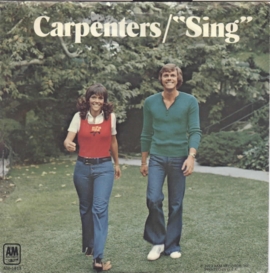
"Sing" is a 1971 song written by Joe Raposo for the children's television show Sesame Street as its signature song. In 1973, it gained popularity when performed by Carpenters, a #3 hit on the Billboard Hot 100.
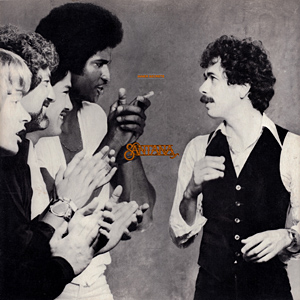
Inner Secrets is the tenth studio album by Santana. It was released in 1978 and, unlike the fusion of Latin, jazz, rock, and spirituality that characterized previous records, it was considered a rock album.

"Stand by Your Man" is a song recorded by American country music artist Tammy Wynette, co-written by Wynette and Billy Sherrill. It was released on September 20, 1968, as the first single and title track from the album Stand by Your Man. It proved to be the most successful record of Wynette's career, and is one of the most familiar songs in country music. The song was placed at number one on CMT's list of the Top 100 Country Music Songs.

"Tell It Like It Is" is a song written by George Davis and Lee Diamond and originally recorded and released in 1966 by Aaron Neville. In 2010, the song was ranked No. 391 on Rolling Stone magazine's list of The 500 Greatest Songs of All Time.
"Superstar" is a 1969 song written by Bonnie Bramlett and Leon Russell, that has been a hit for many artists in different genres in the years since. The best-known versions are by the Carpenters in 1971, Luther Vandross in 1983, and Sonic Youth in 1994.

"Hurting Each Other" is a song popularized by the Carpenters in 1972. It was written in 1965 by Gary Geld and Peter Udell, and has been recorded many times by artists ranging from Ruby & the Romantics to Rosemary Clooney.
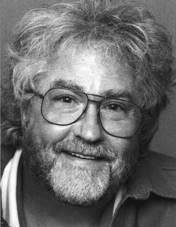
Perry Carlton "Buddy" Buie was an American songwriter, producer and publisher. He is most commonly associated with Roy Orbison, the Classics IV and the Atlanta Rhythm Section.

"These Eyes" is a song by the Canadian rock band The Guess Who. The song was co-written by the group's lead guitarist Randy Bachman and lead singer Burton Cummings and originally included on the band's 1969 album Wheatfield Soul. It was first released as a single, in their native Canada, where its chart success (#7), along with the influence of CKLW-AM Windsor's radio station music director Rosalie Trombley, helped land them a U.S. distribution deal with RCA Records. It was subsequently released in the U.S. in March 1969, and became a breakthrough success for the group, as it would be their first single to reach the top ten on the Billboard Pop Singles chart, peaking at number six, and would eventually be certified gold by the RIAA for sales of over one million copies. It was also a top ten hit in South Africa. While it was actually the 18th single released by the band overall, it was the first from the line-up of Cummings, Bachman, Jim Kale, and Garry Peterson as produced by Jack Richardson.
"Down in the Boondocks" is a song written by Joe South, and first recorded by American artist Billy Joe Royal as his debut single. It was a hit in 1965, reaching No. 9 on the Billboard Hot 100 chart. In the UK, it hit No. 38 on the Record Retailer chart. In Canada, it reached No. 1 on the RPM chart, on August 9, 1965. The song is the title track of Royal's second album, Down in the Boondocks.

"Spooky" is originally an instrumental song performed by saxophonist Mike Sharpe (Shapiro), written by Shapiro and Harry Middlebrooks Jr, which first charted in 1967 hitting No. 57 on the US pop charts. Its best-known version was created by James Cobb and producer Buddy Buie for the group Classics IV when they added lyrics about a "spooky little girl". The vocalist was Dennis Yost. The song is noted for its eerie whistling sound effect depicting the spooky woman. It has become a Halloween favorite. In 1968, the vocal version reached No. 3 on the U.S. Billboard Hot 100 and No. 46 in the UK.
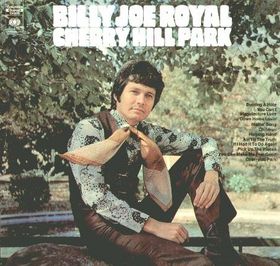
Cherry Hill Park is the third studio album by American singer Billy Joe Royal released in 1969, four years after his hit album Down in the Boondocks.
"Rose Garden" is a song written in 1967 by American singer-songwriter Joe South. It was first recorded by Billy Joe Royal on his 1967 studio album Billy Joe Royal Featuring "Hush". Versions by South himself and Dobie Gray appeared shortly after the original. Gray's version became a minor hit in North America in 1969.

"Traces" is a 1968 song by the American rock band Classics IV. Released as a single in January 1969, the cut served as the title track off the album of the same name. Written by Buddy Buie, J. R. Cobb, and Emory Gordy Jr., the song peaked at No. 2 on 29 March 1969 on the Hot 100, as well as No. 2 on the Easy Listening music charts, making it the highest-charting single by the Classics IV. The song is noted for its use of an oboe, heard in the introduction, as well as a string section.

"Stormy" is a hit song by the Classics IV released on their LP Mamas and Papas/Soul Train in 1968. It entered Billboard Magazine October 26, 1968, peaking at #5 on the U.S. Billboard Hot 100 chart and #26 Easy Listening. The final line of the chorus has the singer pleading to the girl: "Bring back that sunny day". The single, along with the prior release of "Spooky" and, soon after, the release of "Traces", formed a trio of solid hits for the band.
